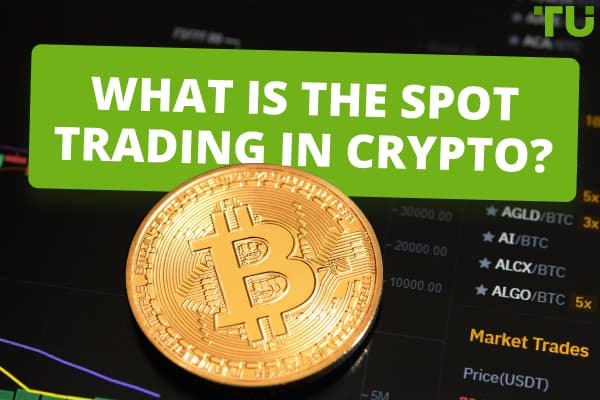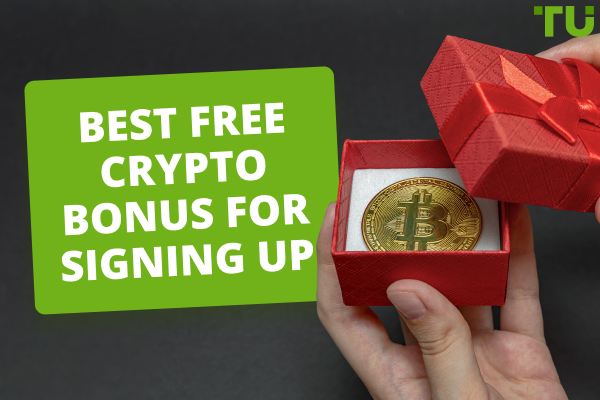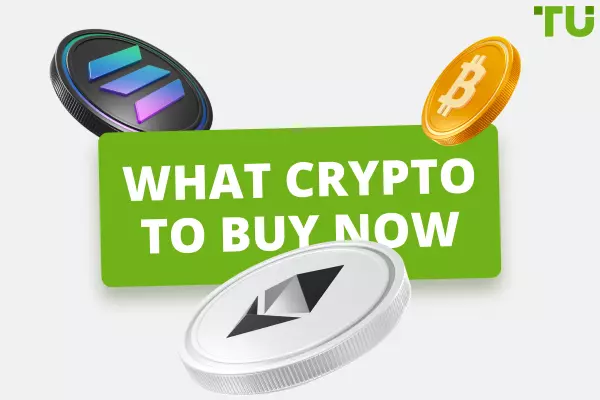Kraken Fees Review - Is Kraken Cheaper Than Coinbase?
Kraken is one of the most high-profile online crypto exchange platforms, along with the likes of Coinbase. The platform allows its users to buy and sell various currencies in exchange for fiat money (such as Euros or US dollars). Kraken is generally regarded as an exchange sufficiently geared towards both novice and experienced investors — as both low and high volume traders make hefty use of Kraken’s high trading limits and low-fee services.
But the question is — how do Kraken’s fees stack up against the functionalities they offer, as well as the fees collected by their major competitors like Coinbase? While both platforms provide significant incentives for budding online traders — such as 24/7 customer service and mobile apps — each of them have different advantages that attract investors.
With all of this in mind, we’ve prepared an in-depth guide through Kraken’s fees — and we’ve also compared them with Coinbase to ensure you’ve got an objective view of the crypto exchange landscape.
Start trading cryptocurrencies right now with Kraken!Kraken Fees - Short Introduction
Much like Coinbase, Kraken is also among the top 10 global crypto exchanges, especially in terms of trading volumes. But if you decide to trade on Kraken, what kind of fees can you expect? Take a look at this quick rundown below.
| Type of fee | Fee rate |
|---|---|
Trade commission |
0% to 0.26% per each trade |
Credit card purchase fee |
3.75% + €0.25 |
Online banking processing fee |
1.7% + $0.10 per each trade |
Crypto margin fees |
0.01% to 0.02% per 4 hours |
Kraken Trading Fees Explained
All of the fees incurred by Kraken users can be divided into the following categories:
-
Funding Fees
-
-
Instant Buy Fees
While many people don’t consider these when thinking about which platform is the most affordable — funding fees are incredibly important. There are costs associated with Kraken sending withdrawals or accepting deposits from their user base.
Though most crypto deposits are free, there are certain (more obscure) cryptocurrencies that you need to pay a deposit fee for on Kraken. There are also minimum levels for the withdrawal of every cryptocurrency — along with a flat fee designed to cover the transactional costs of getting the crypto out of your Kraken account and into a wallet.
When it comes to cash deposits, Kraken accepts the following currencies:
-
JPY (Japanese Yen)
-
CHF (Swiss Franc)
-
CAD (Canadian Dollar)
-
USD (US Dollar)
-
EUR (Euro)
-
AUD (Australian Dollar)
-
GBP (Pound Sterling)
Kraken Trading Fees
The Kraken exchange charges a main trading commission for all transactions between users in cryptocurrencies. The level of the incurred fees depends on each account’s “trading level” — which is the way Kraken categorizes traders by volume. That’s why the sole deciding factor in a user's trading level is their trading volume from the previous 30 days — and this status is updated and recalculated daily.
There are six different user trading levels — and those with the lowest trading volumes incur the highest fees. For instance, the taker’s and maker’s commission at the first level is 0.20% each. On the other hand, traders with the highest level pay no trading commission at all — 0.0 percent. And these fees stand for all stablecoins and cryptocurrencies.
It should be noted that Kraken Pro users have different commissions that are calculated by a completely different formula. For them, the taker’s commission is 0.26% while the maker’s is 0.16 percent. Also, there are nine Pro levels compared to the 6 ordinary users have. This means Pro users can trade more flexibly, and benefit from better commissions on intermediate trading levels.
Crypto Trading Fees
Apart from the crypto trading fees we’ve described above, it’s worth pointing out that the minimum deposits and the deposit fees vary between currencies — for Ethereum it’s 0.05 ETH, while the minimum deposit for Bitcoin is 0.0001 BTC. And those currencies (as well as other high-trading-volume cryptos like Cardano) don’t have any deposit fees — though others do.
When it comes to crypto withdrawal fees, the fee for Bitcoin is 0.00015 BTC, while the minimum withdrawal is 0.0005 BTC. On the other hand, Ethereum comes with a minimum withdrawal of 0.005 ETH and a 0.0035 ETH withdrawal fee.
Kraken Vs Coinbase Trading Fees
If you’re wondering how Kraken’s fee stack up to similar market competitors, here they are propped up against Coinbase:
| Account | Coinbase fees | Kraken fees |
|---|---|---|
US Bank account |
1.5% |
0.9% commission for all FX pairs and stablecoins, 1.5% commission for all other crypto |
Wallet |
1.5% |
0.9% commission for all FX pairs and stablecoins, 1.5% commission for all other crypto |
Credit card transactions |
3.99% |
3.75% + €0.25 commission (besides US) |
Instant card withdrawal |
Up to 1.5% for every transaction, with a minimum $0.55 fee |
Not available |
ACH bank transfers |
0% |
1.7% + $0.10 per every purchase |
Wire transfers |
$25 for outgoing, $10 incoming |
Deposits are free up to $10, while withdrawal fees range from $4 to $35 |
Kraken Non-Trading Fees
Apart from these trading fees, there are also separate rollover and opening commissions that users pay when dabbling in margin trading — these also exist for every currency and cryptocurrency. Also, there are separate fees for futures trading and instant buy functions, which we’ll get into below.
If you decide on trading with leverage, you’ll incur the additional rollover and margin opening fees we’ve described above. Those margin fees depend on the total value of your order — and the held collateral does not get deducted from this overall amount.
For holding long positions, you pay a margin fee with a preference to the currency pair’s quote currency — while short positions come with vice versa fees, charged based on the base currency of your position’s currency pair. These fees range from 0.01% per 4 hours to 0.02% per 4 hours.
As for instant buy fees, these are incurred when a user uses the Buy Crypto widget to place a buy or sell order. The same goes for convert orders as well — you can expect a 1.5% Kraken Fee for all of these. Though, if you’re using a stablecoin to buy another stablecoin (or USD), there’s a lower 0.9% instant buy fee.
According to Kraken, they do not charge any commissions or fees for account maintenance, account inactivity, storing funds, staking, or transferring funds between your account and your Futures wallet.
Does Kraken Charge Withdrawal Fee?
When it comes to withdrawal fees, these also depend on the currency in question and the payment processor. Generally, almost all withdrawal fees on Kraken range from 0 to 35 units of the selected currency.
Does Kraken have a conversion fee?
The precise deposit fees you may incur depend on the specific currency, as well as your bank of choice — some banks charge a fee themselves for depositing the money with Kraken’s payment processors.
If there are any intermediary banks between your bank and Kraken’s payment processor, they may also charge an additional transactional fee — especially if the transaction involves conversion to another currency in the process; for instance, someone outside of Europe trying to deposit Euros into their Kraken account.
Finally, there are the credit and debit card fees. The total spending amount on every credit card purchase is increased by 3.75% of the purchase and an additional €0.25. To Kraken’s credit, this fee is completely transparent and clearly visible on the final confirmation page before every purchase.
Also, certain card issuers charge additional fees for online card purchases — though these are obviously outside of Kraken’s control.
It’s also worth pointing out that the minimum transaction amount for credit cards is 10 euros — and a maximum spending limit of 7,500 euros over the course of a seven-day rolling period.
Kraken Interest Rates
If you don’t intend on amassing wealth on Kraken through sheer trading, but you’d also like to save some money — you can use staking to maximize the earning potential of your existing holdings. Don’t let them go to waste in your Kraken account — simply stake your crypto assets and start earning yearly awards. The interest you can hope to earn varies based on the currency in question, but it goes up to 20 percent.

Staking Kraken
Coinbase offers rewards for staking as well, though we have to point out they’re slightly lower than on Kraken — at least for the major currencies.

Staking Coinbase
Kraken Fees vs Coinbase Fees
Right off the bat, it’s important to note that both Coinbase and Kraken are some of the most attractive crypto exchanges and online trading websites you can find — especially in terms of trading and transactional fees. That being said, you can see from the comparison tables above that Kraken does come out on top slightly — and while the difference may seem marginal, it’s likely to become more important to you as your trading volume goes up.
How to Reduce Kraken Fees to 0
We’ve already gone over the fact that Kraken’s main trading fees largely depend on your trading volume. In other words — the more you trade, the lower interest you pay. And seeing as the system recalculates your trading level based on your volume each day, you won’t have to wait long to see results.
If you’re set on reducing your Kraken fees to 0%, you’re after a lofty goal — you’d need a trading volume upwards of $1,000,000. However, anything above $500,000 and you’re looking at a trading fee of 0.04%, which is basically nothing.
Traders Union Rebate
Every trader who decides to trade on the Kraken exchange can reduce their commissions through a rebate — in other words, return of a part of the commission. The process is simple — you register an account on the Traders Union website, thereby gaining access to an affiliate link. If you use this link to register an account on the Kraken website, you’re almost done — you just add the trading account’s number to the “accounts” part of the Traders Union website. That’s all — you just start trading now, and the rebate will be automatically credited to your balance on the Traders Union website each month.
Top 5 Kraken Reviews
-

Comment
Kraken offers a wide range of cryptocurrencies and has a solid reputation in the industry, but serious issues with usability, customer support, and reliability detract from its appeal as a crypto exchange option.
-

Comment
I have to say they are scammers. He believed in Kraken, held coins on their crypto exchange. I recently found out that they deducted 50% of the balance from my trading account because I had not logged into my account for a long time. Who does this! And this without warning, of course!
-

Comment
It used to be not bad here, but every year the Kraken exchange dies down, as its turnover falls. Now it cannot be said that this is a large exchange, which it once was ...
-

Comment
I tried different exchanges, eventually settled on Kraken. Here are the best conditions for me. I have my favorite tools, the platform is understandable, I figured it out quickly and so far (for six months) nothing has lagged. The commission is also adequate, often below the market. Analytical materials are generally informative. But I’ll clarify right away: I was initially interested in a broker for active independent trading. There are no investment programs in Kraken, and that suits me. If you want extra income, then this is not your option, don't waste your time. I won’t say anything about beginners: on the one hand, Kraken provides basic training, but you can’t call the support service, except for a ticket or a chat.
-

Comment
I see that many people praise the Kraken exchange for its reliability and comfortable conditions for cooperation. I've been using this platform for about a year, and it's really good here. I would also like to note a high-quality trading terminal, it is simple and at the same time functional, even take profit and stop loss are integrated. The Kraken exchange has many advantages, so I will not list all of them. You will see for yourself if you register. I just want to name the cons such as the lack of telephone communication and investment programs. Also, the exchange favors active traders.
FAQs
Is Kraken good for trading?
Yes, the reported user experience on both Coinbase and Kraken gets pretty high rankings.
How do you trade with the Kraken?
After registering an account, you deposit some money, select a currency pair and the amount you want — and voila, you’re done!
How much do you need to trade on Kraken?
For trading, the minimum values are 1 unit of fiat currency, or the equivalent of $1 for crypto.
Can US citizens trade on Kraken?
It depends on the state — it’s available to all US residents barring those in New York and Washington.
Team that worked on the article
Glory is a professional writer for the Traders Union website with over 5 years of experience in creating content in the areas of NFT, Crypto, Metaverse, Blockchain, or Web3 in general. Over the last couple of years, Glory has also traded on different cryptocurrency and NFT platforms including Binance, Coinbase, Opensea, and others.
“I understand a lot about this space, being familiar with CEX, DeFi, and DEX, as well as operating across the Ethereum, Binance, and Polygon networks. Also, I know the intricacies and subtleties of NFTs and crypto, thus I am able to bring to table the best content and help connect with the audience better.”
Dwight specializes in risk, corporate finance, alternatives, fintech, general business trends, and financial markets, and he has broad experience managing complex projects. Dwight is an author for the Traders Union website.
Dwight was a financial columnist for The Wall Street Journal and The New York Times during the Great Financial Crisis. He has served as Editor-in-Chief of Worth, a personal finance magazine for the wealthy, and as Editor of Risk, the premiere global publication about derivatives, risk management, and quantitative finance, based in London.
He has also served as Managing Editor at The Economist Group and ran the Americas operations of two British trade publications.
For the last 12 years, Dwight has worked as a freelance writer and editorial project manager, serving clients in the financial technology, banking, broker/dealer, consulting, asset management, and corporate sectors. This has given him considerable experience in idea generation and project management, working collaboratively to help clients meet their goals with little or no supervision.
Mirjan Hipolito is a journalist and news editor at Traders Union. She is an expert crypto writer with five years of experience in the financial markets. Her specialties are daily market news, price predictions, and Initial Coin Offerings (ICO). Mirjan is a cryptocurrency and stock trader. This deep understanding of the finance sector allows her to create informative and engaging content that helps readers easily navigate the complexities of the crypto world.









